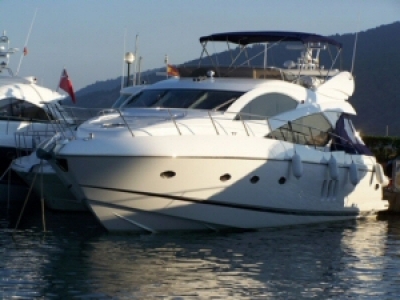 By now, we all know about the tragedy of the cruise ship, Costa Concordia, that ran aground off the Tuscany coast recently. It has certainly dominated television and online news making it nearly impossible to avoid viewing the shocking scenes of that vessel on its side in the water.
By now, we all know about the tragedy of the cruise ship, Costa Concordia, that ran aground off the Tuscany coast recently. It has certainly dominated television and online news making it nearly impossible to avoid viewing the shocking scenes of that vessel on its side in the water.
Perhaps not surprisingly, the reality of the wreckage quickly found its way into our own backyard. Local and national news outlets including CBS Baltimore reported that a Maryland woman, Anna Figueredo, and her daughter were among the passengers and that they were two of the last to reach a lifeboat. Of course, Mrs. Figueredo and her daughter are safely back at home in Silver Spring, MD, undoubtedly glad to have survived the ordeal. It's safe to say that this is one trip that won't soon be forgotten.
Maritime commerce and pastimes are inherent in the culture of the midAtlantic region of our country. The use of our many waterways and seemingly endless miles of coastline is fundamental to our commercial and recreational survival. Therefore, the image of that disabled Italian cruise ship should emphasize to us the risks of boating accidents, regardless of the size of the vessel – from giant cruise ship to small fishing craft or pleasure boat.
In our local waters, running aground is certainly a risk. There are many causes. In our region, one that comes to mind occurs when there is a build-up of silt, sand and stone (often called shoaling) and often caused by storms and resultant heavy currents. However, the Insurance Information Institute (III) reminds us that there are thousands of recreational boating accidents per year with other contributing factors ranging from ignoring boating regulations, lack of boating experience to traveling too fast for water or weather conditions, to driving under the influence of drugs or alcohol, just to name a few.
Although commercial boating is a year-round operation, the recreational boating is more seasonal and might be months away; but it will be here before you know it. Why not prepare now to have your boat ready when the season arrives? The U.S. Coast Guard Auxiliary offers free advice and boating safety courses. In fact, just for the asking, the auxiliary will perform a full Courtesy Marine Examination (CME) of your vessel. They award a CME decal “Seal of Safety” to all boats that meet the standards. Learn more about the CME.
Just as important as checking the safety of your vessel is checking your boat insurance coverage. Perhaps this is a good time to sit down with one of our experienced agents who can help you determine whether your insurance policy provides the proper coverage at the best rates possible. Just contact us at your convenience to discuss your boating insurance.


 William M. Sparks 1945 - 2023
William M. Sparks 1945 - 2023



